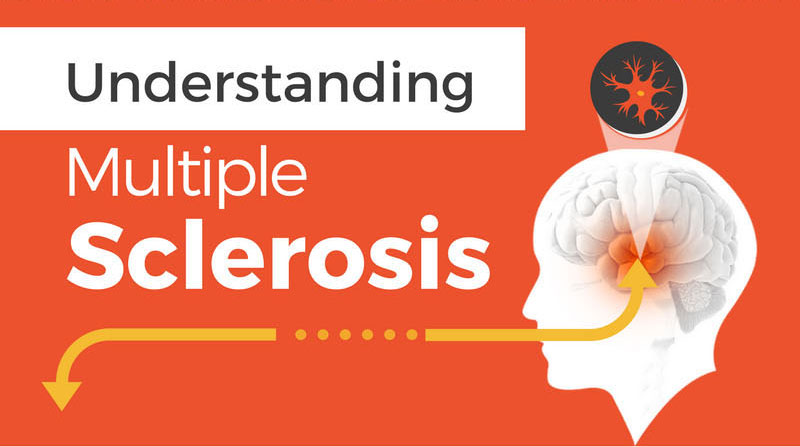One of the more prominent medical discoveries of the last few decades has been the realization of just how much stress affects the body, and this is especially true for MS patients, as stress exacerbates most MS symptoms.
Nearly any MS patient you might talk to can tell you their own stories of how stress has worsened their disease at some point, and the same is true of pretty much any other chronic diseases.
As a result, managing stress has become its own health industry, and just as stress relief has become a big business, so too should it be your business, as managing your stress can be one of the best ways to manage your multiple sclerosis.
Common Stressors
While researchers continue to research and pinpoint what triggers MS episodes—including viruses, genetic factors, and vitamin D deficiency, for instance—most researchers now agree that one of the biggest triggers is a stress event.
Some of the most common stress events that may bring on an MS episode include the following:
- Accidents, injuries, and major sickness
- Changed personal situations, including deaths, divorces, job loss, a new baby, buying a home, etc
- Long-term chronic fatigue, such as resulting from overwork
These same stress events can be chronic, as well, meaning they can be the precursor for more flare-ups in the future if not seriously addressed, and soon.
So how to address these stress events?
Stress Management Strategies
Let’s start with a reality check: You will never be able to fully eliminate stress from your life. It’s simply too prevalent. What we can do, however, is learn how to manage it, which starts by removing the largest stressors (as we can) from our lives.
We do this by first identifying the major stressors in your life, and then prioritizing. This can be a hard process—in and of itself stressful. (Ironic, I know.) It is, however, a necessary step to de-stressing your life as able.
Let’s look at each point above.
Accident, Injury, Sickness
Obviously, if we have an accident, injury, or sickness, the first thing we need to do is take steps to address our health and get better. This can be doubly difficult for MS patients, as this process can cause symptoms to go crazy, but staying patient, calm, and focused on the steps you’re taking toward recovery of your health is especially important here. Keeping an empowered state of mind and positive attitude is a key part of healing and can be a powerful force in its own right.
Next, you will need to take measure to prevent these accidents, injuries, and sickness from happening in the first place. For example, if a friend is sick, don’t go visit them; let them get healthy first. If you have a mobility issue that can result in an accident, use mobility aids as necessary as well as an exercise routine that can help improve mobility as able.
Life Events
Moving on to the second point, when something outside your control occurs, the first step is to recognize that some things are out of your control. This is not the same as throwing in the towel and giving up; rather, it is a realization of your limitations. There are still plenty of ways to minimize or even resolve stress, which we’ll look at now.
First, take care of your health. No matter what else is going on, eating well, getting enough sleep, and exercising regularly are important pieces of keeping your symptoms in check. Similarly, when you aren’t eating well or sleeping well, that can exacerbate poor decisions, irritability, and other things that will only make a stressful situation worse.
Second, get help where you can. Make use of friends, support networks, and professional services that are available to you. This might mean counseling. It might mean seeking help from friends and family. It might be finding a safe place to vent. It might be asking for a loan. Regardless of what help looks like, there is never any shame in asking for help.
Third, get better at saying no. Just because someone wants you to do something doesn’t mean it’s the right choice for you. If it will overtax you, avoid it. Again, remember your priorities.
Finally, make lifestyle changes. You may not be able to do everything you once could. Learn to accept that, determine which pieces you need to change (based on your priorities and your knowledge of what works with your symptoms and what doesn’t), and then make those changes.
The goal isn’t necessarily to live the life you always have, and nor should it be. Instead, your goal should be to live the best life you can in a way that limits your stress and your symptoms, rather than a life that is perpetually limited by your symptoms.
Chronic Fatigue
Lastly, the changes you make in your lifestyle should be sure to address any chronic fatigue, as well as limit the likelihood of it arising in the future.
Keep in mind how quickly short-term stress can turn into long-term stress, and again, practice saying no and knowing your limits. There’s nothing wrong with needing to take a step back periodically.
Keep the big picture in mind. Would you rather be able to manage your MS symptoms long-term, or do the one thing you’re being asked to do? Most often, reframing the situation in those terms can help you reprioritize.
Lastly, make your own stress toolbox. Build tools that can help you relax, whether that’s reading a book quietly, going for a swim or walk, or meditating with some yoga. Showers and baths can also be destressors, as can ice packs or other ways to physically cool down. If necessary, consider medication that can help with anxiety or depression or sleep difficulties.
Work with your entire support network and physicians and specialists to find what works for you. Regardless of what strategies you take, however, know that managing your stress will be an important part of managing your multiple sclerosis.







I was living with MS for years before being officially diagnosed in 2021. I got annual MRIs, and I did not take any meds due to side effects. I had one flare up in 2021. My legs decided to a break, and I was numb from the waist down. I decided to try MS-4 from Uine Health Centre. The numbness and Muscle spasms went away after a couple of weeks, but it took almost 3 months to walk properly without a cane. In June, it will be four years without incident, and I am extremely happy that I made the decision to not take any meds and went for the MS-4 formula even though my neurologist got upset and one told me to quit my job because I will be disabled. Well, I am not disabled, I still refuse to take those meds, and I am doing just fine. Believe in yourself and go with your instincts. Doctors don’t know it all. I’m surprised a lot of people with MS haven’t heard of the MS-4 protocol, I got the treatment from uinehealth centre . c om I am absolutely confident that this protocol offers a viable solution. I hope you find it helpful.